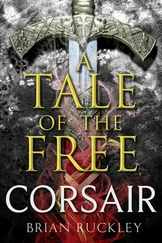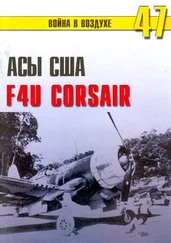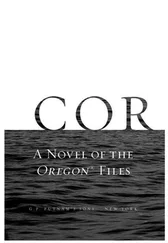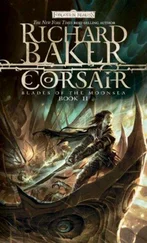SEVENTEEN

‘I THOUGHT YOU WERE going to get your neck broken,’ grumbled Diaz as he hurried Hector and the others away. ‘Moulay is not usually so forbearing. He’s like those cats of his. You never know what he is thinking and which way he will jump. He’ll toy with a victim for hours before pouncing. Then it’s all over in a moment.’
They were returning through the palace compound by a route that took them towards an area of large, square buildings with the appearance of storehouses and depositories. ‘I think you were saved by the fact that you come from Ireland. I dare say Moulay’s met very few people from that country, and when you appeared in front of him to answer about this miraculous new gun and said you were Irish, he must have thought that fate had taken a hand. His master gun founder is an Irishman. He’s been casting cannon or repairing Moulay’s artillery for years, and he’s very popular with those of us who like to celebrate now and then, because he’s allowed to keep large stocks of alcohol. He claims it’s an essential ingredient for his craft. Ah! There he is, the small man in the leather apron just coming out of the foundry.’
Hector saw a stooped, white-haired figure emerge from the nearest of the buildings, wipe his face with a cloth, then stand in the open, fanning himself. His clothes were soaked with sweat.
‘Greetings Sean,’ called Diaz. ‘I’ve got some helpers for you. By order of the Emperor himself.’
The gun founder looked at them placidly. Hector judged him to be about sixty years old. Beneath his shock of white hair he had clear grey eyes in a face permanently discoloured with ingrained grime, and his hands and bare forearms were marked with dozens of small burns and scars. The gun founder coughed to clear his throat, spat carefully and wiped his face again before replying.
‘Help’s always welcome,’ he said, looking Hector and his companions over. Hector noted that his voice, like all his movements, was calm and unhurried. His Spanish was slow and deliberate. ‘What are they meant to do?’
‘Explain to you about some sort of new artillery the Emperor wants copied,’ said Diaz cheerfully. ‘This is Hector. He’s a countryman of yours.’
‘Is he indeed?’ responded the old man and, addressing Hector, said, ‘I’m Sean Allen from Meath though it’s a long time since I was there. And yourself?’
‘Hector Lynch from Cork County, and these are my friends: Dan is from the Caribees, Jacques Bourdon from Paris, and Karp is a Bulgar, though he’s a mute.’
The gun founder shot Karp an amused glance and said, ‘He’s a silent bugger, so?’ No one understood the quip and he added, ‘Buggers or bugres, that’s what you call someone who’s awkward. It’s on account of so many Bulgars being troublemakers. Something to do with their religion. They are said to be extreme heretics. Not that I care.’
He paused to wipe his brow again.
‘I saw enough bigotry back home when I was at the siege of Limerick with Cromwell’s son-in-law, Ireton. I minded and mended his cannon for him, and what he did to those who led the resistance sickened me and I left poor unhappy Ireland. Since then I’ve served the Sultan in Istanbul, the Bey of Tunis, and now the Emperor of Morocco. They all need guns and will employ those who have the knowledge to make them. Now tell me about this artillery I’m supposed to copy. What’s so special about it?’
‘I don’t know the technical details,’ Hector answered, ‘but it’s a short, fat gun which shot flaming bombs in the air and they fell into a town and exploded.’
‘Nothing new there,’ said the gun founder, now mopping the back of his neck with the cloth. ‘Mortars have been used for years. Ireton had four of them when we besieged Limerick, and a Hungarian built a truly enormous one for the Grand Turk when he besieged Constantinople and that was two centuries ago. I saw his great mortar on display in the city. It was so big that it shot stone cannonballs that weighed five hundred pounds. Mind you, it must have taken the stonemasons a month of Sundays to chip and shape each cannonball so it fitted right. Not exactly a rapid rate of fire.’
‘The gun we saw used ready-made hollow shells of metal fitted with different sorts of fuses. Some worked, others didn’t. The gun was mounted on a galley, and that’s why we are here. It shook the galley to pieces.’ Hector stopped talking, conscious that he had said something which had caught the gun founder’s attention.
‘A mortar carried on a ship. That’s different altogether,’ Allen said thoughtfully. ‘Some clown failed to compensate for the recoil. It would need a different sort of carriage from the usual one for land guns, something that would allow the downward thrust to be converted to a sideways motion. I heard that a Dutchman – Coehorn I think is his name – has come up with an improved mortar, perhaps that is what was being used on board that ship.’ He was half talking to himself, imagining the practical problems of his new commission from the Emperor, and Diaz had to interrupt him. ‘Sean, I’ve got to get back to my own billet. I’ll leave your new helpers with you. I presume you can find space for the extra members of your team.’
‘Yes, of course,’ said the gun founder absent-mindedly, ‘I’ll see that they are looked after.’
Allen turned towards the building behind him, and pulled open the door. His visitors quailed at the blast of heat though the gun founder seemed to be oblivious to the temperature as he led Hector and the others inside. ‘This is the foundry itself,’ he explained, as they stepped around a mass of glowing metal in a pit. ‘We had a pour a few hours ago and are waiting for the metal to cool down. It’s nothing special, just a small brass culverin. The Emperor likes to boast that he has a full-sized gun foundry, but in fact we haven’t the facilities to make anything much bigger than this. Most of our work is repairing damaged cannon or casting round shot and grape for his field artillery. A ten-pound ball is heavy enough to knock down the mud walls of the forts that the tribes build for themselves in the interior. But a true siege cannon, like the weapon you are talking about, is another matter altogether.’
He had reached the far end of the foundry, and passing through a double door and then across the narrow lane he brought his visitors into an even larger building. It was an arms depot. Here were rack upon rack of sabres and muskets, trays of pistols, bundles of pikes and an array of blunderbusses. Clusters of bandoliers hung on pegs, and disposed here and there on the floor were heaps of body armour, corselets, greaves, and helmets of many different styles and in varying condition. ‘The Emperor hates to have any war material thrown away,’ confided the gun founder. ‘Half of this stuff is so antiquated as to be useless, like that arquebus over there. But when Moulay comes on an inspection he’ll suddenly ask to see some piece of equipment which he remembers from months earlier, and there’s all hell to pay if it can’t be produced immediately. You there!’ He called out to a lad who was replacing an old-fashioned Spanish helmet in a chest. ‘Don’t put it in like that. Wrap it first in paper so it keeps its gleam.’ Hector noted that the gun founder had spoken in English. ‘Does everyone in the foundry use English?’ he asked. ‘I should hope so,’ answered the Irishman. ‘I’ve got a score of youngsters working here for me, and every one of them is English. It’s another quirk of Moulay’s. Every time his people capture an English youngster, the lad is assigned to work with me in the Arsenal. My guess is that Moulay thinks the English make the best gun founders and gunsmiths.’
Читать дальше









